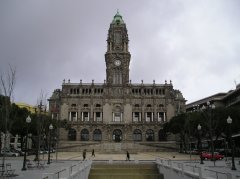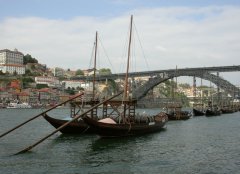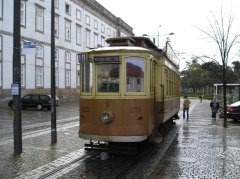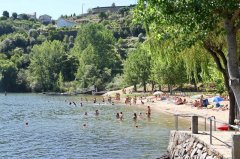Porto
Porto is one of Europe’s oldest tourist destinations. Its wealth of monumental and artistic heritage, Porto Wine, open-air leisure spaces and cultural life are just some of the reasons to visit this city (https://www.visitporto.travel/Visitar/Paginas/default.aspx).
The city unfolds along the river bank and the sea shore, to reveal charming vistas, inviting esplanades and all the pleasures of the outdoors, framed by its green spaces. But setting out to discover Porto, means bumping into surprise after surprise. Whilst maintaining its welcoming and conservative nature, the city is, at the same time, contemporary and creative. This can be seen in its streets, its architectures, its museums, its leisure spaces, its esplanades and its shopping areas which run from the traditional to the modern and exclusive.
Porto’s Historical Centre was designated World Cultural Heritage in 1996 and its natural setting and its meandering streets give it a unique charm. Furthermore, Porto has been elected for the third time European Best Destination in 2017 (https://www.europeanbestdestinations.com/best-of-europe/european-best-destinations-2017/) , after having won in 2014 (https://www.europeanbestdestinations.org/top/europe-best-destinations-2014/) and 2012 (https://www.europeanconsumerschoice.org/travel/european-best-destination-2012/).
Furthermore, Porto has been recognized as one of “Top 10 alternative city breaks in Europe”, according to The Guardian (https://www.theguardian.com/travel/2015/mar/02/top-10-alternative-city-breaks-europe-lyon-ghent-leipzig), and as a “…charming city that combines the best of old and new.”, according to The New York Times (https://www.nytimes.com/interactive/2016/01/28/travel/what-to-do-in-36-hours-in-porto-portugal.html?smid=fb-nytimes&smtyp=cur&_r=0).
Icons such as “Torre dos Clérigos”, “Serralves”, and “Casa da Música” stand witness to a mature urban space, but one that is in constant movement. Events enliven the annual cultural and sporting calendars, culminating in “São João”, the city’s own Feast. At night, Porto turns into a new and different city, with entertainment and leisure opportunities that cater to all tastes and excitement that bubbles up to fill the streets with energy and cheerfulness.
Port wine is present in the city in a multitude of forms and sensations: you can get to know it and try it, but never ignore it or forget it (https://www.visitporto.travel/MaisPorto/Paginas/Cidade/artigo.aspx?artigo=149&SubAreaType=13&SubArea=190). It is also possible to start in Porto a travel through the Porto Wine Douro Region, either by in a historical train (https://www.cp.pt/passageiros/pt/como-viajar/em-lazer/cultura-natureza/comboio-historico) or by boat (https://www.douroazul.com/Default.aspx).
The city is well located geographically and is able to count on a modern transport and communications network.
Getting to know Porto might mean letting yourself be taken round by someone who knows the city and suggests a visit or venturing out to discover everything else your trip surprises you with (https://www.youtube.com/watch?v=YjIPvujj1bs).
Having witnessed a long history of cultural ebbs, flows and eddies caused by successive waves of occupation, and often surrounded and invaded, but always remaining Invicta (unbowed), the city of Porto is really a living heritage, one that regenerates and reinvents itself, whilst maintaining its core character, grounded in granite and, thus, unshakeable.
How to reach Porto
Porto is a modern European city served by an international airport, railways and a public transportation system that includes both bus services and subway lines. The city of Porto is easily accessible from abroad. Several airlines offer direct service to Francisco Sá Carneiro International Airport, located about 20 km from the City Centre (https://www.aeroportoporto.pt/en/opo/flights-destinations/airlines/airlines-and-destinations). For more information please visit the official Porto Tourism website













